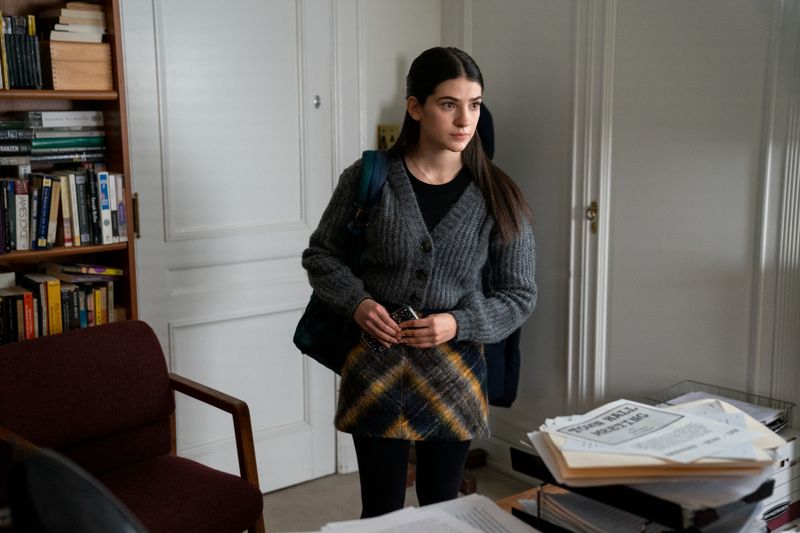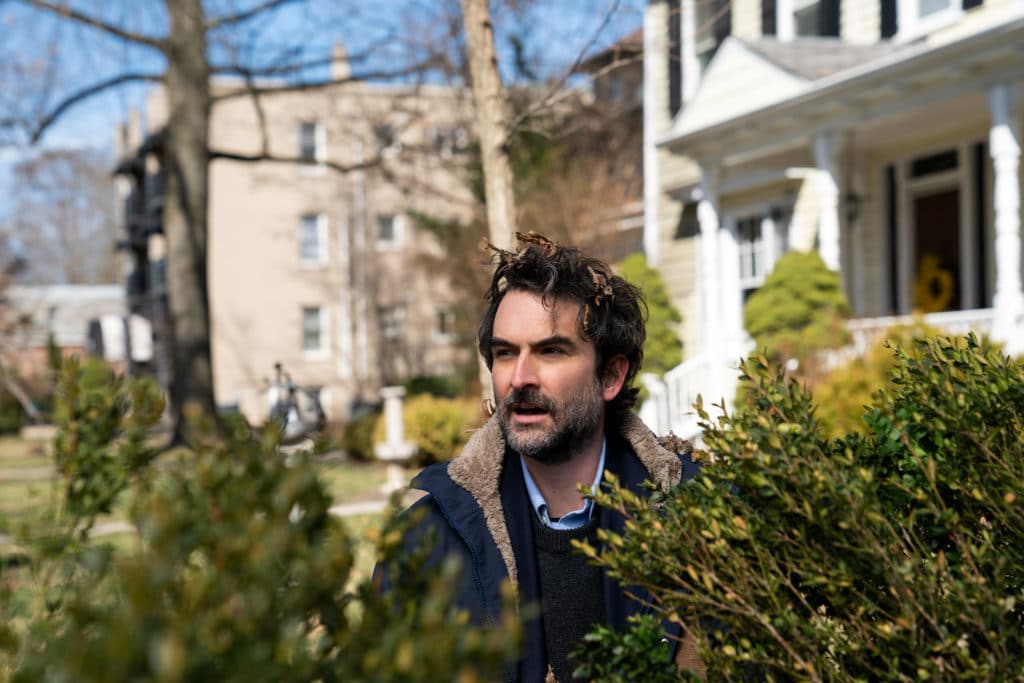
As a recent liberal arts graduate, I didn’t even need to watch the trailer to know I’d get a kick out of Netflix’s The Chair.
What I expected was dark academia vibes, the joy that is watching Sandra Oh in anything she does and maybe some campus drama.
To my surprise, what I got was a witty commentary on cancel culture and college politics spurred on by a professor’s unthinking Nazi salute joke during class.
Like I said, I’m a recent college graduate and I spent my time at university deeply entrenched in campus politics and combating antisemitism. So I watched parts of The Chair as if it was a romanticized retelling of my own time as a student.
The six-part series follows Ji-Yoon Kim, a Korean-American academic (played by Sandra Oh) as she steps into her new promotion as chair of the English department at a fictitious Ivy League college in New England.
As the first woman of color in the position, Kim knows it will be a challenge. She’s in for a surprise when she assumes a long-list of problems in the department including defiant professors, shrinking funds and students who want to challenge outdated norms.
The crux of the story comes when esteemed Professor Bill Dobson mocks a Nazi salute during lecture. Although the act isn’t meant hatefully, a few students catch the incident on camera, it goes viral, and the story spirals from there.
So here’s what I think the show gets right and wrong about antisemitism on campus:
Warning: spoilers ahead
College antisemitism is on the rise
It’s no secret that antisemitism on college campuses is on the rise — or at least it’s being reported more.
Nearly 50% of Jewish students say they, or someone they know, have been physically threatened for being Jewish according to a recent study.
In The Chair, Professor Dobson brushes off his viral moment, assuming it will blow over. It definitely does not, and given the context of the situation, it is perhaps blown out of proportion. But, understanding the severity of the accusations against Dobson, one ambitious Jewish student tries to warn the Professor.
“This is going to be a bloodbath,” the character Dafna Eisenstadt tells him. “Any so-called jokes related to Hitler are in their own special category.”
“Do you not see this? There is a larger campus context here… There’s a larger national context. To be Jewish with all these militias? Last year we had the largest number of antisemitic incidents in 40 years.”

I immediately pulled out my phone while watching this scene to Google “Who wrote The Chair on Netflix?”
It came as no surprise when the name of Jewish actor, writer and producer Amanda Peet came up. These are lines only someone Jewish could write.
Antisemitic incidents continue to rise dramatically but yet an esteemed English professor can’t understand why one joke is such a big deal. This storyline is important because it highlights the ignorance that exists around antisemitism on campus. It’s usually only Jews who really notice or care.
Holocaust jokes aren’t funny anymore — they never were
That being said, The Chair also highlights the growing impact of “woke culture” on campuses and the message is clear: students are sick of problematic microaggressions going unchecked.
In Netflix's ode to academia "The Chair", a professor's apology for a Nazi satire gone awry was rejected by his students for being insincere. It takes more than a meek "I'm sorry" for Gen Z to forgive.
— Ara Eugenio (@araeugenio) August 26, 2021
Before cellphones, the internet or virality existed, Professor Dobson’s Nazi salute might have simply become a campus whisper.
“Did you hear…”
Maybe it would have reached a higher-up, but it is highly unlikely that the professor would have received consequences — much less gotten fired — for his poor handling of the situation.
But in reality…
Although the times are changing, the reality is that professors still do get away with problematic behaviors.
I write this with confidence because that was the case during my undergraduate degree.
While studying at Carleton University in Ottawa, Canada, I both experienced and heard whispers about certain professors who had made antisemitic comments or jokes, featured antisemitic cartoons in their presentations, or made antisemitic tropes a part of their lecture.
The whispers came more as warnings than as gossip. Warnings to avoid taking a course with that professor for fear they might penalize you for writing or saying something that outed you as Jewish or Zionist.

In The Chair, we largely feel sorry for the struggling Professor Dobson who gets fired after a situation gets blown out of proportion. But in real life, at least in my experience, justice is rarely served.
The student body’s voice matters
There’s truth behind The Chair’s message about cancel culture on campus but there’s also a lot of melodrama. (Duh — it’s fictional)
Nevertheless, The Chair emphasizes the increasingly important point that students have little to no tolerance for racist comments, jokes and microaggressions.
Maybe they never did, but nowadays, students seem much less afraid to say something.
The student body’s voice matters, perhaps more than ever before, and using the internet as a megaphone students have the ability to make a difference, to create online revolutions.
On real campuses, Jewish students also have the backing of Hillels, activist organizations and Jewish centres to help in the fight.
Did you watch ‘The Chair’? What was your takeaway? Tell us on Instagram, Twitter and TikTok.
Originally Published Oct 6, 2021 12:02AM EDT
